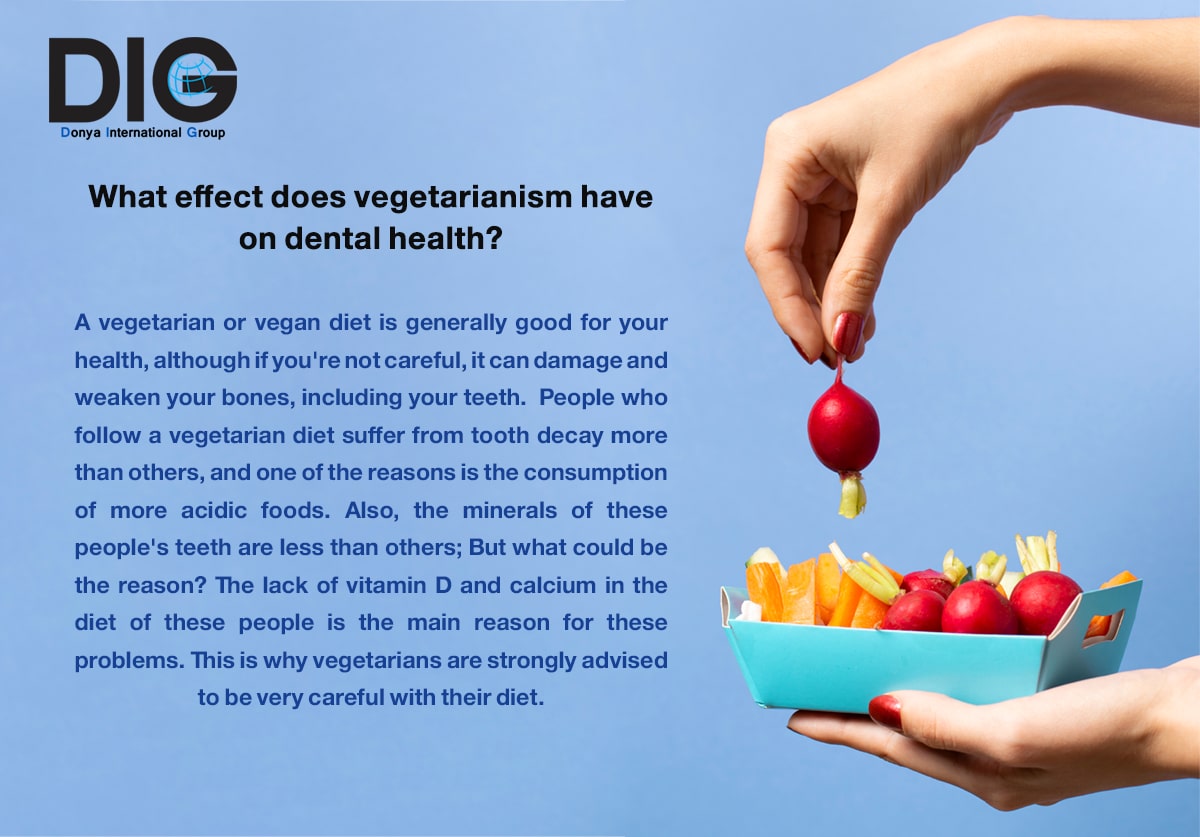


Vegetarianism and plant-based diets have become increasingly popular in recent years.
Vegetarianism and plant-based diets have become increasingly popular in recent years. Many individuals adopt these diets for various reasons, including environmental concerns, ethical considerations, or even to improve their overall health. While these diets can contribute to general well-being, if not followed with care and sufficient knowledge, they may have negative effects on dental health and bone strength.
The Impact of a Vegetarian Diet on Dental Health
One of the significant challenges that vegetarians face is maintaining dental health. Studies have shown that individuals following a vegetarian diet are more prone to tooth decay than others. This issue can be attributed to various factors, including the consumption of more acidic foods, which can erode tooth enamel and lead to cavities.
Lower Mineral Content in Vegetarian Teeth
Another issue that vegetarians may encounter is a decrease in the mineral content of their teeth. This can lead to weaker dental structures, making them more susceptible to oral diseases. But why do vegetarians have less mineral content in their teeth?
The Role of Vitamin D and Calcium in Dental Health
One of the primary reasons for the reduced mineral content in the teeth of vegetarians is a deficiency in vitamin D and calcium. Vitamin D helps in the absorption of calcium, which is a crucial element in the structure of teeth and bones. Therefore, if vegetarians do not receive adequate amounts of vitamin D and calcium, their teeth may weaken and be at higher risk.
Alternative Food Sources for Vitamin D and Calcium
To address this issue, vegetarians must carefully select their food sources. Some calcium-rich sources for vegetarians include dark leafy greens like spinach and kale, almonds, tofu, and fortified plant-based milks. Additionally, vitamin D-rich sources for vegetarians include mushrooms and vitamin D-fortified products like certain plant-based milks.
Tips for Maintaining Dental Health in a Vegetarian Diet
To maintain dental health while following a vegetarian diet, several key points should be considered:
Conclusion
While a vegetarian diet can offer numerous health benefits, it is important to recognize that it may present challenges to dental health. Vegetarians should pay special attention to meeting their needs for vitamin D and calcium and follow dental care practices more diligently. By adhering to these guidelines, potential complications can be avoided, and dental health can be maintained on a vegetarian diet.